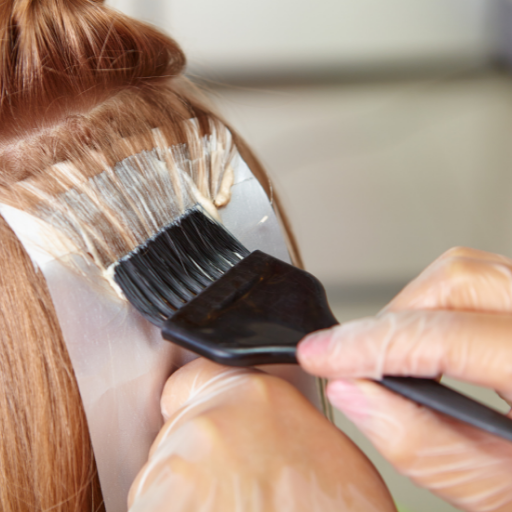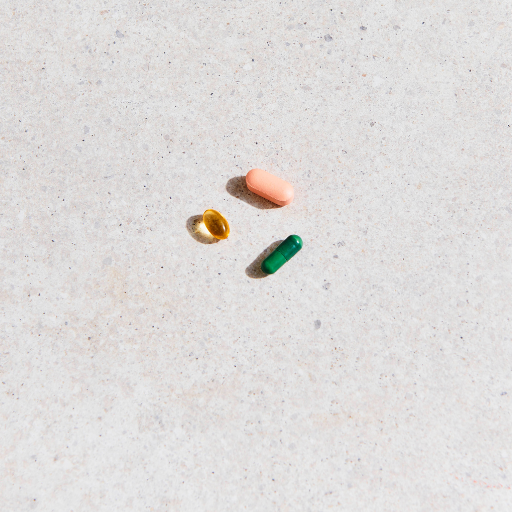How to repair damaged hair from hair dyes and salon treatments gone wrong


How to repair damaged hair from hair dyes and salon treatments gone wrong
When we go for regular colouring sessions or other salon treatments, we always go in hoping it will be the best experience possible for our hair. However, repeated and harsh chemical treatments and exposure to poor quality products can gradually weaken strands of hair or irritate the scalp, resulting in visibly unhealthy hair. In the long run, chemical treatments can lead to hair loss or difficult-to-treat damage, leading regular salon goers to seek professional advice for how to repair damaged hair.
To help address this, special hair supplements formulated to aid unhealthy hair return to its former glory are readily available. Though often an overlooked option when finding ways for how to care for damaged hair, hair supplements can help protect as well as repair unhealthy hair when taken alongside a healthy diet.
How chemical treatments can damage hair
It might be a lot of fun to change hair colour every few months or explore other salon chemical treatments like perming, straightening, and bleaching, but be cautioned about the lesser-known risks of these services.
There are chemicals found in hair dyes, hair tints, and bleaches that may disrupt the body’s natural hormone levels (1). Though your hair may not appear as unhealthy hair after your first few trips to the salon, damage may accumulate over time and cause bigger, more expensive problems later on. Heat damage through heat styling often makes hair prone to breakage. Serums for heat protection are helpful for the protection of both the hair and scalp. Warm olive oil and coconut oil massages, avoiding combing wet hair, the occasional hair masks, leave in conditioner are good for most hair types.

Hair problems and other health risks posed by chemical treatments
Hair, regardless of texture, is sensitive to chemical treatments.
To better appreciate this, it helps to learn that each hair shaft is composed of a structural protein known as keratin. In turn, the keratin is made up of an outer layer, or the cuticle, and inner layers, namely, the cortex and medulla. When you undergo chemical treatments, the cuticle layers may break (2). If the cuticle degenerates and the cortex layers are exposed, it may result in hair fibre fracture which then appears as visibly unhealthy hair (2). It is usually at this stage, when hair has already been extensively exposed to chemicals, that salon regulars realize the true extent of their hair issues and scramble for ways of how to repair damaged hair.
For some individuals, unhealthy hair is the least of their worries. Take a 2019 study where researchers discovered a link between hair dye and a chronic disease (1). Participants who used permanent hair dye at least once in the year leading up to the study faced a 9% higher risk of developing the disease than women who didn’t use hair dyes. While the findings are varied based on different products with different formulations, it may be worth doing greater research into the chemicals that go into your favourite hair dyes.
How to repair damaged hair with nutrients

Despite the damage your hair has undergone, you can take simple steps to breathe life back into unhealthy hair.
You can start by switching to healthier colouring alternatives, going to the salon less often, or even adjusting your diet to include foods packed with nutrients that can address the problem of unhealthy hair.
On top of these suggestions, you may also want to consider adding vitamins and mineral supplements that provide the support that your hair needs to recover.
If you’ve ever wondered about how to repair damaged hair, this list of supplements can help you answer that question:
Zinc
Zinc is an essential trace material that plays an important role in the formation of collagen, which is necessary for hair health. The body cannot produce zinc on its own; it can only be obtained through food (3) or supplements.
While zinc is found in meat products, some individuals, like vegans, may be susceptible to zinc deficiency. Zinc deficiency has been linked not only to hair loss but also too brittle hair and slow hair growth.
If you’re wondering how to repair damaged hair, zinc is a good place to start.
Cranberry
Cranberry is a powerful antioxidant that contains compounds that support hair health by helping in repairing unhealthy hair.
At Vitable, our cranberry formula harnesses the ability of vitamin C and silica to support and maintain hair health. Vitamin C and silica supports collagen synthesis, which is important for hair strength and health (5, 6). If you’re looking for ways on how to repair damaged hair, consider adding cranberry to your daily vitamin pack.
Collagen creamer
Collagen is the most abundant protein in the body that strengthens the skin, blood vessels, and tissues. But as we age, our body makes less collagen, which could mean that its ability to support hair health is compromised (4).
Vitable’s bioactive collagen creamer stimulates the cells to produce more collagen, keeping the hair in good shape.
Biotin
Biotin is a water-soluble vitamin that plays a role in the production of keratin, the main structural protein making up your hair. Studies suggest that taking biotin supplements can improve hair growth in sparse areas of the scalp. Conversely, biotin deficiency has been linked to hair loss.
Vitable’s biotin supplement is specially crafted to support hair health and maintain hair strength and thickness. If your hair has lost life due to chemical-based treatments, biotin can be a useful addition to your vitamin regimen.
Taking vitamin and mineral supplements can optimise the effects of your healthy lifestyle choices. Paired with a balanced diet and lifestyle, these hair-specific nutrients can restore your hair to its former glory. At Vitable, we offer daily vitamin subscription packs to keep your hair strong and healthy from within. Mix and match custom supplements like zinc, cranberry, collagen, and biotin depending on your needs and health goals. We even take care of vitamin delivery!
Find out more about other areas that the above supplements can help you with:
Zinc with copper | Biotin | Cranberry | Collagen
*Always read the label. Follow the directions for use. If symptoms persist, talk to your health professional. Vitamin and/or mineral supplements should not replace a balanced diet.
References:
- Harvard Health Publishing. (2020). Are your personal care products putting your health at risk? https://www.health.harvard.edu/womens-health/toxic-beauty Accessed October 03, 2021
- National Institutes of Health. (2015). Hair Cosmetics: An Overview. https://www.ncbi.nlm.nih.gov/pmc/articles/PMC4387693/ Accessed October 03, 2021
- Healthdirect. Zinc and your health. https://www.healthdirect.gov.au/zinc Accessed October 03, 2021
- Harvard School of Public Health. Collagen. https://www.hsph.harvard.edu/nutritionsource/collagen/ Accessed October 03, 2021
- Vitable. Vitamin C Plus. https://research.vitable.com.au/vitamin-c-plus Accessed October 16, 2021.
- de Araujo, L., et. al. Use of silicon for skin and hair care: an approach of chemical forms available and efficacy. https://www.ncbi.nlm.nih.gov/pmc/articles/PMC4938278/. Accessed October 03, 2021
